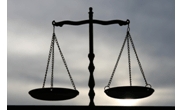Government/Policy

February 11, 2020
Leibowitz on Trade: Yesterday’s Preliminary Ruling of Circumvention
Written by Lewis Leibowitz
Trade attorney and Steel Market Update contributor Lewis Leibowitz offers the following update on events in Washington:
The Commerce Department has been active again on behalf of domestic petitioners seeking circumvention findings. On Monday, Commerce issued a preliminary finding of circumvention with respect to three countries (Costa Rica, Malaysia, and the United Arab Emirates). Two other countries, Guatemala and South Africa, were found not to have circumvented the AD/CVD orders against China. SMU has asked me to comment for readers on the determinations and what they may mean for steel traders.
The circumvention investigations were similar in many respects to three investigations involving Vietnamese production of corrosion-resistant steel. It was alleged that Chinese substrate (hot rolled and cold rolled sheet) was being shipped to the five countries and cold rolled or coated (or both) to provide a way into the United States without being subject to antidumping and countervailing duty orders against Chinese CORE steel. However, the new cases were self-initiated by Commerce without any complaint by domestic petitioners. This was the first time that Commerce self-initiated a circumvention investigation.
The responding foreign producers and importers provided data that indicated that very little if any Chinese substrate was being used in CORE steel that was shipped from these countries into the United States. Commerce has clearly indicated that CORE steel that was not made with Chinese-origin substrate (or, in the case of Malaysia, Taiwanese-origin substrate) was not covered by these circumvention investigations. However, in cases where Commerce found inadequate cooperation by respondents, they resorted to “adverse facts available.” Companies that did not fully cooperate were not permitted to certify that their exports to the United States did not use Chinese (or Taiwanese) substrate. All cooperative respondents are permitted to certify that no circumventing substrate was used.
There is at this point no evidence that significant shipments of CORE from any country are using Chinese (or, in the case of Malaysia, Taiwanese) substrate. Nevertheless, Commerce will require certification that Chinese or Taiwanese substrate is not being used. Failure to so certify will require importers of CORE steel from those countries to pay deposits of estimated antidumping and countervailing duties as though the products originated in China or Taiwan, respectively.
SMU wanted my assessment of the risks to importers of purchasing CORE steel from the three countries that were ensnared in these circumvention cases. That calls for legal advice beyond a commentator’s purview. I can say that the Commerce certification processes (and avoiding the companies that were named as non-responsive and therefore ineligible to participate in the certification process) provides significant protection from potential exposure to massive duties, as long as the other parties to the transaction are reliable. Conversely, I would urge extreme caution in dealing with any company that was found to be non-responsive because the certification procedure is necessary to avoid exposure to prohibitive duty deposits by the Commerce Department.
While all transactions entail risk, the circumvention findings involve an additional layer of exposure. These transactions could be subject to additional review by Commerce and/or Customs. The details of each deal could be significant. Companies should be able to verify adequately all material facts.
The Law Office of Lewis E. Leibowitz
1400 16th Street, N.W.
Suite 350
Washington, D.C. 20036
Phone: (202) 776-1142
Fax: (202) 861-2924
Cell: (202) 250-1551







